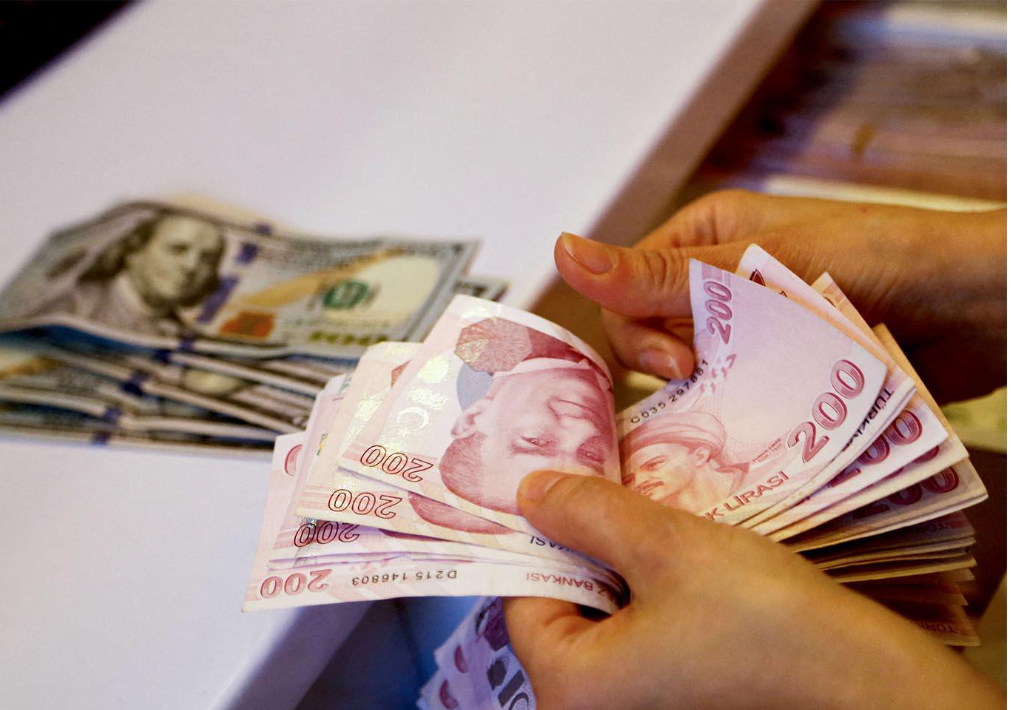The Turkish lira weakened as much as 3% against the dollar on Tuesday and Wednesday (4 pm), nearing its weakest level this year, after Russia escalated tensions in eastern Ukraine, posing a risk to Turkey’s macroeconomic stability. Dollar/TYL currently trades at 13.82-83. In addition to fundamental reasons for the weakening of the Turkish currency, a rumored decision to move from the de facto peg to managed float by authorities, according to senior Ankara correspondent, Mr Erdal Sağlam, broadcasting for Mesele Ekonomi YouTube channel.
The losses came as Russia’s parliament approved treaties with two breakaway regions in eastern Ukraine, opening the way for a Russian troop deployment despite the threat of Western sanctions, including blocking a major new pipeline, reported Reuters.
NATO member Turkey faces a tough balancing act in the crisis as it has good ties with both Ukraine and Russia. Ankara has criticized Russia’s decision to recognize the independence of the two regions, but opposes sanctions.
The lira slid as far as 13.88, suffering its biggest daily losses since early January. It has traded in a narrow range since then as Ankara acted to stabilize the currency, which Turkish experts label a de facto peg.
The threat of war between Turkey’s Black Sea neighbors Russia and Ukraine could harm the country’s already ailing economy after a currency crisis in December.
“A prolonged conflict…could keep energy prices high throughout the year, or may even propel them higher. The energy shock is already advancing through various channels to make life miserable in Turkey,” said Atilla Yesilada, Istanbul-based analyst at GlobalSource Partners.
Any prolonged conflict could also cut tourist flows to Turkey by around $2 billion this summer, assuming Russian and Ukrainian tourist arrivals stay the same as in 2021 or dip a bit, he wrote in a note.
Last year, the lira dropped 44% against the U.S. currency, tumbling after the central bank pushed through 500 basis points of unorthodox interest rate cuts from September under pressure from President Tayyip Erdogan.
Fed Interest Rate Hikes Will Hurt Turkish Economy (And Other Emerging Markets) Badly
Costly state interventions in the forex market and a scheme to protect lira deposits against depreciation has bolstered the currency since it touched a record low of 18.4 last year.
The lira slide late last year has in turn triggered a surge in annual inflation to nearly 50% for Turkey’s import-dependent economy, adding to the concerns regarding energy import costs.
Turkey’s Energy Shortage Reaches Critical Point
Oil prices rose to their highest since 2014 after Moscow ordered troops into eastern Ukraine, adding to supply concerns that are pushing prices towards $100 a barrel.
Erdal Sağlam claims Central Bank will allow dollar/TL to move by 2-3% per month to increase the attractiveness of the newly-minted FX protected TL deposit scheme, where some depreciation of the TL will boost total interest income from subscribing to the scheme. Additionally, it is quiet feasible that maintaining a strict peg for more than a few months will increase imports, by triggering a real appreciation of the currency.
Finally, the pressure on the TL could bed genuine, driven by rising cost of imports, as well ass exporters buying FX in spot market, since they are now forced to surrender %25 of their export income to Central Bank at CB-determined exchange rates. While estimates differ, the average import content of Turkish exports is around 25-40%.
Follow our English language YouTube videos @ REAL TURKEY:
https://www.youtube.com/channel/UCKpFJB4GFiNkhmpVZQ_d9Rg
And content at Twitter: @AtillaEng
